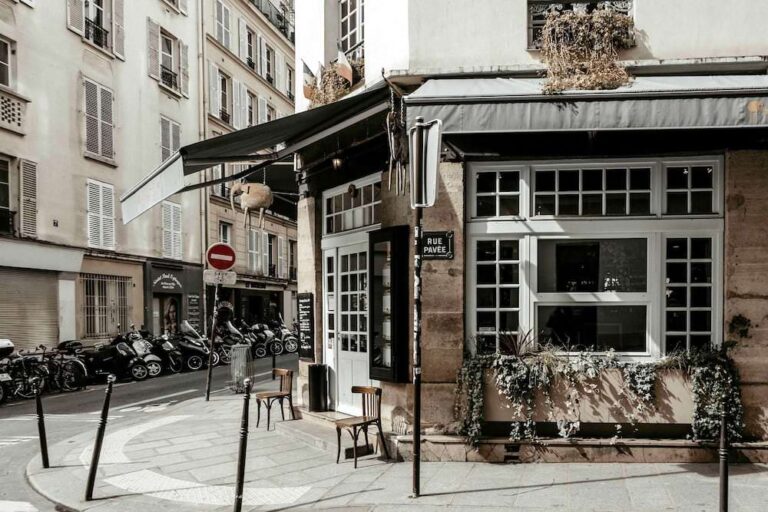Masculine feminine noun forms
Some French nouns have both a masculine and a feminine form, but each form means something different. This can confuse learners, so it helps to see clear examples. Here is a list of common nouns that change meaning with gender, in alphabetical order.
Critique
Le critique means the critic.
La critique means the critique or criticism.
example:
Le critique a adoré ce film.
The critic loved this film.
example:
La critique a été sévère.
The criticism was harsh.
Garde
Le garde means the guard.
La garde means the guard duty or custody.
example:
Le garde surveille l’entrée.
The guard watches the entrance.
example:
Il a la garde de ses enfants.
He has custody of his children.
Guide
Le guide means a guide (person).
La guide can mean a female guide (less common) but also a guidebook.
example:
Le guide nous a montré la ville.
The guide showed us the city.
example:
Il lit la guide touristique.
He is reading the tourist guidebook.
Livre
Le livre means a book.
La livre means a pound (unit of weight or currency).
example:
J’ai acheté un livre intéressant.
I bought an interesting book.
example:
Une livre de tomates, s’il vous plaît.
A pound of tomatoes, please.
example:
La livre sterling est forte aujourd’hui.
The pound sterling is strong today.
Manche
Le manche means a handle.
La manche means a sleeve or the English Channel.
example:
Tiens bien le manche de la poêle.
Hold the handle of the pan well.
example:
Regarde la manche de ta chemise.
Look at the sleeve of your shirt.
example:
Ils ont traversé la Manche.
They crossed the English Channel.
Manœuvre
Le manœuvre means an unskilled laborer.
La manœuvre means a maneuver or operation.
example:
Le manœuvre travaille sur le chantier.
The laborer works on the construction site.
example:
La manœuvre a réussi.
The maneuver succeeded.
Mémoire
Le mémoire means a dissertation or report.
La mémoire means memory.
example:
Il rédige son mémoire de master.
He is writing his master’s thesis.
example:
Il a une bonne mémoire.
He has a good memory.
Mode
Le mode means a method or a mode.
La mode means fashion.
example:
C’est un mode de vie particulier.
It is a particular way of life.
example:
Elle travaille dans la mode.
She works in fashion.
Moule
Le moule means a mold or a baking tin.
La moule means a mussel (the shellfish).
example:
Verse la pâte dans le moule.
Pour the batter into the mold.
example:
J’adore manger des moules marinières.
I love eating mussels with white wine sauce.
Poste
Le poste means a position, a post, or a radio/TV set.
La poste means the post office or postal service.
example:
Il a trouvé un poste intéressant.
He found an interesting job.
example:
Éteins le poste de télévision.
Turn off the TV set.
example:
Je vais à la poste envoyer une lettre.
I am going to the post office to send a letter.
Solde
Le solde means a balance or pay.
La solde means a sale or clearance.
example:
Le solde de mon compte est positif.
The balance of my account is positive.
example:
J’adore faire les soldes.
I love shopping the sales.
Tache
La tache means a stain or spot.
La tâche (with a circumflex) means a task.
example:
Il y a une tache sur ta chemise.
There is a stain on your shirt.
example:
Cette tâche est difficile.
This task is difficult.
Tour
Le tour means a trip, a circuit, or a turn.
La tour means a tower.
example:
On fait un tour du quartier.
We are taking a walk around the neighborhood.
example:
C’est ton tour de jouer.
It is your turn to play.
example:
La tour Eiffel est magnifique.
The Eiffel Tower is beautiful.
Voile
Le voile means a veil.
La voile means a sail.
example:
Elle porte un voile blanc.
She is wearing a white veil.
example:
La voile du bateau est déchirée.
The boat’s sail is torn.
Some people think “clé” and “clef” belong in this list. They do not, because both spellings mean the same thing (key) and are always feminine. The spelling “clef” is older but still used in music, such as “clef de sol” (treble clef).






